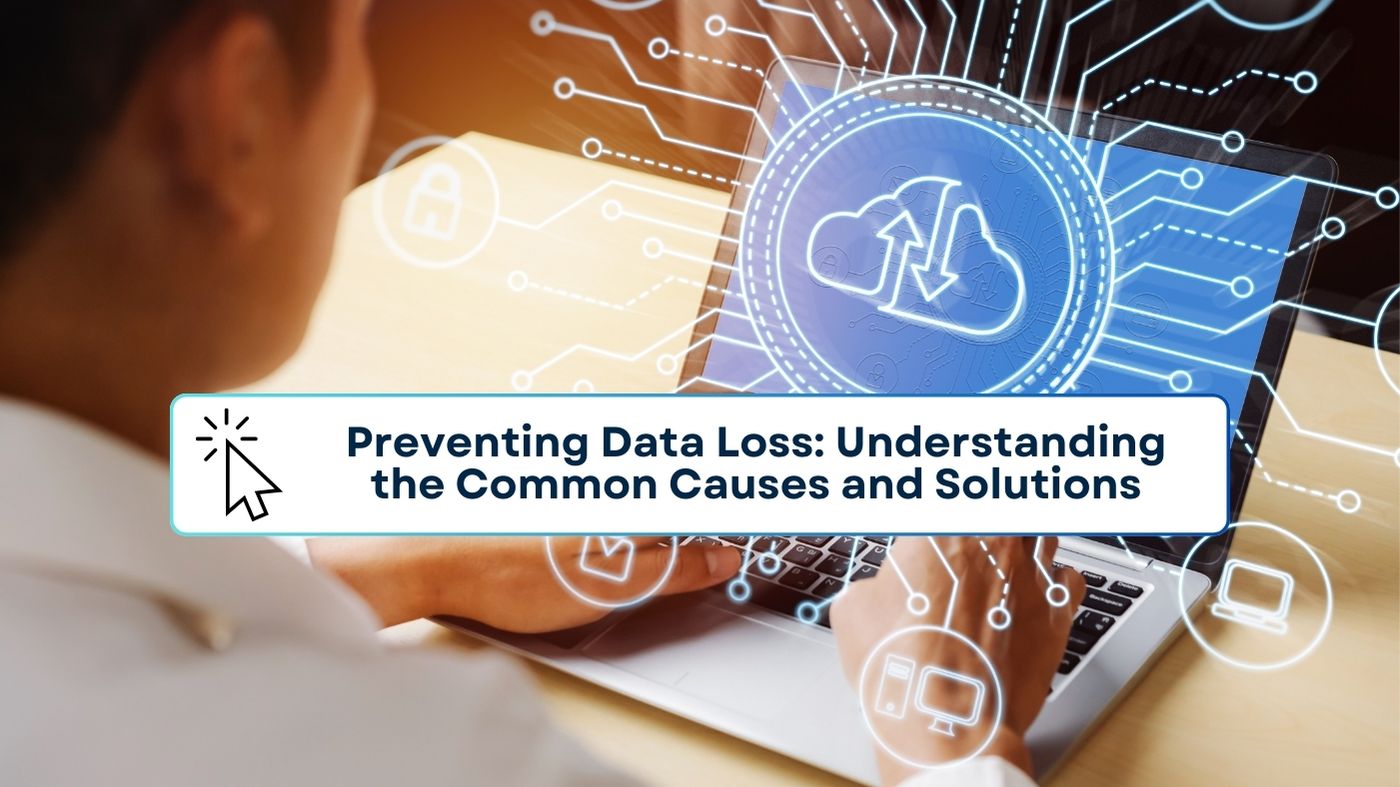In this modern era, our lives are becoming more and more dependent on technology. With the immense amount of valuable information, memories, and critical data stored on our devices, the risk of data loss becomes a major concern. Experiencing data loss can have a profound impact, whether it involves personal files, important business documents, or cherished photos. Luckily, there are measures we can implement to avoid data loss and protect our digital assets. In this blog, we will delve into the various factors that can lead to data loss and offer practical advice on how to safeguard your valuable information.
Hardware Failure
Hardware failure is a significant factor contributing to data loss. From hard drive malfunctions to power surges or physical damage, various issues can make your data inaccessible. It is advisable to take the following precautions to reduce the risk of data loss as a result of hardware failure:
- It is crucial to regularly back up your data. Make sure to create copies of your important files and store them in multiple locations. External hard drives, cloud storage services, and network-attached storage (NAS) devices are great choices for backups.
- Make sure to invest in high-quality hardware. Invest in top-notch storage devices from well-established manufacturers. SSDs are known for their superior reliability compared to traditional hard drives, thanks to their absence of moving components.
- Ensure the safety of your electronic devices with surge protectors and uninterruptible power supplies (UPS) Safeguard your devices against power fluctuations and outages with the help of surge protectors and UPS units. These devices are designed to safeguard against data corruption resulting from unexpected power loss or voltage spikes.
Human Error
Mistakenly deleting files, formatting the incorrect drive, or unintentionally overwriting crucial data are frequent instances of data loss resulting from human mistakes. Here are some preventive measures to keep in mind to reduce the risk of data loss due to human error:
- It is highly recommended to regularly back up your data. Make sure to back up your data frequently, especially before carrying out any important tasks like software updates or system modifications.
- Take advantage of cloud storage and synchronization: Cloud storage services such as Dropbox, Google Drive, or OneDrive offer the convenience of automatically syncing and backing up your files, giving you added peace of mind.
- Introduce user training and policies. It is important to ensure that you and your employees are well-informed about effective data management practices. Implement guidelines that promote a cautious approach when dealing with confidential information.
Malicious software and online security breaches
The significance of protecting against data loss due to malware and cyberattacks has increased with the prevalence of cyber threats. Cybersecurity threats like ransomware, viruses, and phishing attacks can result in the compromise and theft of sensitive data. To protect against these risks:
- Ensure your device is protected with reliable security software Make sure to use trustworthy antivirus and anti-malware software to safeguard your devices against harmful attacks. It is crucial to regularly update the software for maximum protection.
- Secure your devices: Take steps to protect your devices by enabling firewalls, which serve as a safeguard against potential online threats.
- Stay vigilant against phishing attempts. Exercise caution when opening emails or clicking on suspicious links. Stay vigilant against common phishing tactics and ensure that you and your team are well-informed on how to spot and steer clear of them.
Occurrences of Natural Disasters and Accidents
Unforeseen events like floods, fires, earthquakes, or accidents such as spills or device drops can result in permanent data loss. Although it’s not possible to completely foresee or avoid such occurrences, there are certain measures you can take to minimize their impact:
- Ensure data security. Safeguard your valuable information by storing backups in a secure off-site location, such as a safe deposit box or a reliable cloud-based backup service.
- Opt for storage options that are both waterproof and shock-resistant. Consider investing in storage devices that are built to withstand water damage and physical shocks, like durable external hard drives or USB drives that are waterproof.
Experiencing data loss can be quite distressing, but there are steps you can take to minimize the risk. By implementing these measures, you can have the assurance that your data is safeguarded against common factors that may lead to data loss.
If you’re in need of assistance with data recovery, look no further than TN Computer Medics. Our team is dedicated to providing reliable and professional services to meet your needs. We have the expertise to handle both personal computers and large enterprise networking systems. Feel free to reach out to us today and we’ll quickly retrieve your data for you!

